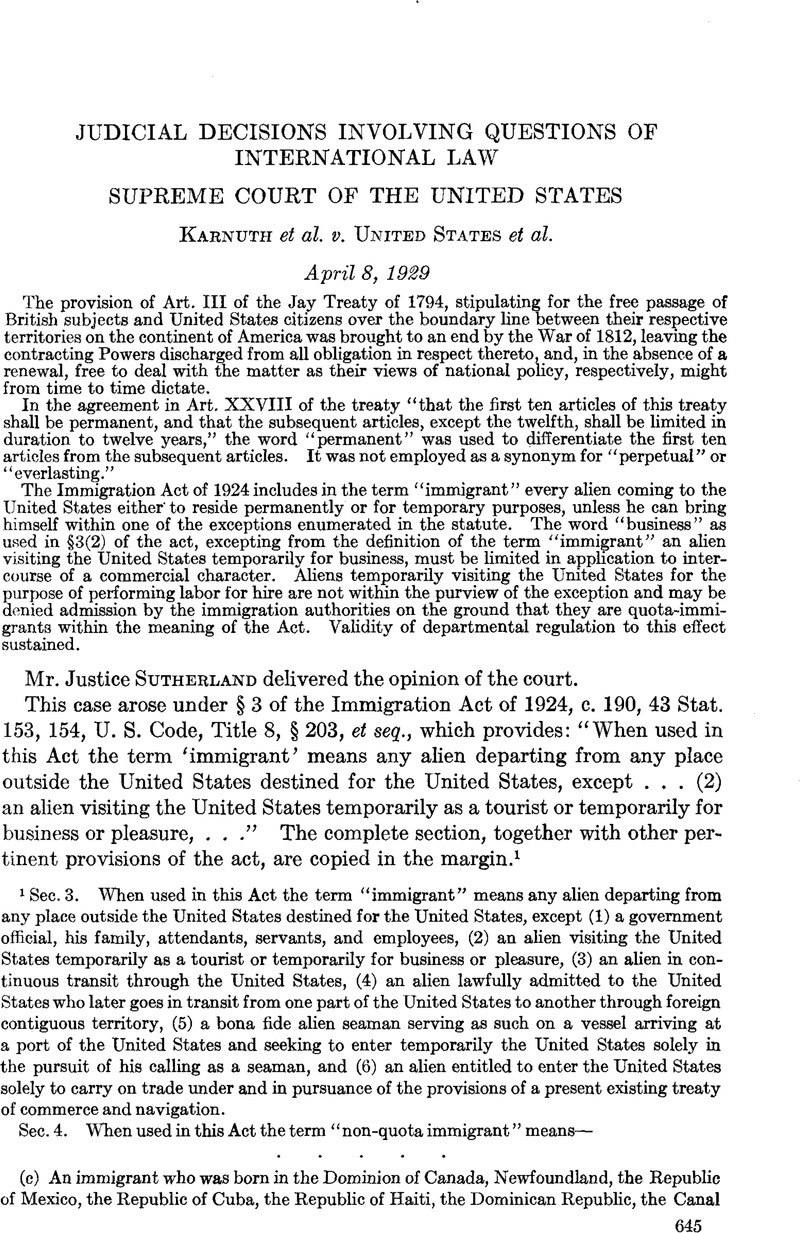No CrossRef data available.
Article contents
Karnuth et al. v. United States et al.
Published online by Cambridge University Press: 04 May 2017
Abstract

- Type
- Judicial Decisions Involving Questions of International Law
- Information
- Copyright
- Copyright © American Society of International Law 1929
References
1 Sec. 3. When used in this Act the term “ immigrant” means any alien departing from any place outside the United States destined for the United States, except (1) a government official, his family, attendans, servants, and employees, (2) an alien visiting the United States temporarily as a tourist or temporarily for business or pleasure, (3) an alien in continuous transit through the United States, (4) an alien lawfully admitted to the United States who later goes in transit from one part of the United States to another through foreign contiguous territory, (5) a bona fide alien seaman serving as such on a vessel arriving at a port of the United States and seeking to enter temporarily the United States solely in the pursuit of his calling as a seaman, and (6) an alien entitled to enter the United States solely to carry on trade under and in pursuance of the provisions of a present existing treaty of commerce and navigation.
2 … risolus par l’état de guerre les traites conclus en vue de relations pacifiques entreles signataires et ayant pour objet ou pour but la consolidation ou le maintien de ces relations pacifiques. Ex:les traites d’alliance, de subsides, de garantie, de commerce, de navigation, d’union douanifire, etc. Ces traites sont par leur nature meme affectes d’une condition rsolutoire implicite, la cessation de l ’etat de paix. Ils ne peuvent pas survivre a 1'ouverture des hostilites entre les Etats signataires. La guerre est pour eux une cause d’extinction definitive, et non une cause de simple suspension. La paix conclue, ils ne sortent pas spontan&nent d’un tat de lethargie momentane: ils ne revivent pas, a moins qu’ils no soient expressement renouveles dans le traits de paix.


